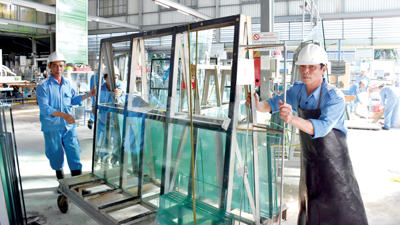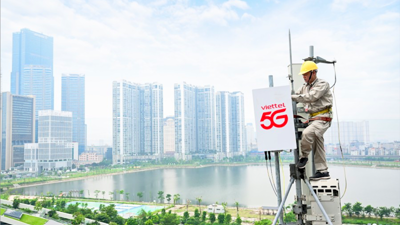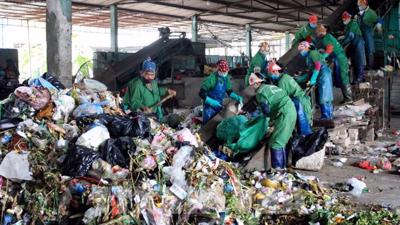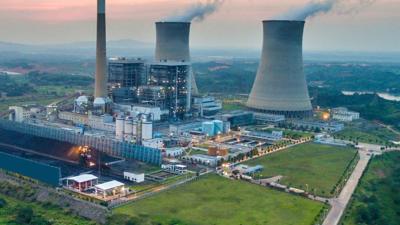Vietnam’s green growth dilemma: Balancing development and sustainability
Seeking a path to ‘green growth’, Vietnam faces the challenge of transforming its economy while addressing mounting environmental pressures, a recent conference heard.

Vietnam’s remarkable economic transformation over the past decades has undoubtedly lifted millions out of poverty. But a stark reality underscored by Deputy Minister of Natural Resources and Environment Le Cong Thanh at the ongoing 4th Conference on Environmental Pollution, Restoration Measures, and Environmental Management (ICEPORM) 2024 in south-central Binh Dinh province, is that this progress has come with an escalating environmental cost.
“Environmental pollution has become increasingly intricate,” Deputy Minister Thanh acknowledged, citing localized degradation, particularly near industrial hubs, alongside the mounting pressures of climate change-induced drought and saltwater intrusion.
Green Imperative
The Deputy Minister’s speech highlighted the delicate balancing act Vietnam faces. Rapidly industrializing to maintain its growth trajectory, the country must simultaneously address these environmental concerns to ensure long-term sustainability. This tension lies at the heart of the country’s pursuit of “green growth”.
Vietnam has been incorporating environmental considerations into its development plans for years. However, the recent pledge to achieve net-zero emissions by 2050 at the COP26 climate summit marks a significant escalation in ambition. This goal implies a fundamental restructuring of the economy away from its reliance on fossil fuels.
Science Seeking Solutions
ICEPORM 2024 serves as one of the key platforms in this transformation. The gathering together of leading Vietnamese and international scientists, governmental and non-governmental organizations and, most of all, the country’s environmental policymakers aimed at pinpointing urgent areas like microplastics, chemical contamination, and risk assessment, while identifying viable technological innovations.
“Through this forum, we aim to share best practices and collaboratively devise effective solutions tailored to Vietnam’s situation,” said Deputy Minister Thanh.
Obstacles on the Path
Despite this commitment, experts caution that Vietnam faces an uphill battle. A legacy of outdated, pollution-intensive industries, coupled with limited resources for immediate technological upgrades, presents major hurdles. Transitioning to a low-carbon economy requires significant investment, not only in renewable energy infrastructure but also in worker retraining and adaptation across sectors.
Furthermore, while the “net-zero” pledge sends a strong signal, critics argue that concrete implementation plans and specific targets for key industries remain unclear. This lack of a detailed roadmap risks hampering investor confidence and delaying the necessary shifts in business practices.
Balancing Economic Aspirations
A renowned environmental expert, who spoke on condition of anonymity, emphasized the need for a nuanced approach. “Vietnam cannot simply replicate the green transition models of developed nations,” he explained. “Our economy remains heavily dependent on manufacturing and exports; sectors that often come with higher environmental footprints. A phased, targeted approach is essential to minimize disruptions and ensure social equity.”
The discourse at ICEPORM 2024 demonstrated Vietnam’s awareness of the complex challenges ahead. Whether the conference can successfully translate scientific insights into actionable policy, and ultimately into cleaner, greener development, remains to be seen. But there is a palpable sense that the country’s future prosperity hinges on striking that delicate balance between growth and environmental responsibility.
Vietnam’s Specific Complexities
Adding to the challenge, Vietnam must contend with several unique factors. Rapid urbanization and a growing middle class are driving increased consumption and waste generation. The country’s long coastline makes it particularly vulnerable to sea-level rises and extreme weather events exacerbated by climate change.
Additionally, as a major agricultural producer, Vietnam faces pressure to balance water resource management, fertilizer and pesticide use, and sustainable farming practices to mitigate environmental impacts while ensuring food security.
The journey towards green growth will undoubtedly involve trade-offs and difficult policy choices for Vietnam. Nevertheless, the gathering of scientific minds at ICEPORM 2024 highlighted the willingness to confront these challenges and the potential for innovative, context-specific solutions.










